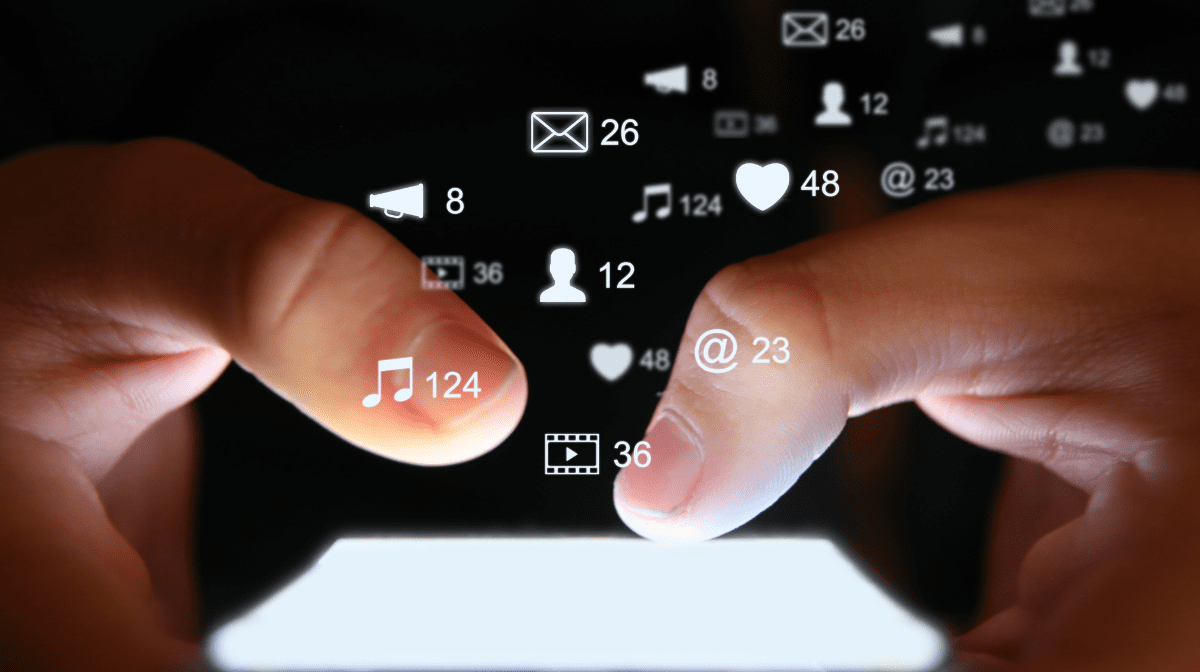
Almost all of us spend some time each day on social media—probably too much time.
In many ways, social media can be a positive thing in one's life to make connections and find inspiration. However, the negative impacts of social platforms may affect you more than you think.
The Study
In a recent study led by Dr. Phillip Ozimek from the Faculty of Psychology at Ruhr University Bochum, Germany, researchers surveyed over 1200 people and looked at several factors regarding social media:
Do these people have materialistic attitudes and compare themselves to others, how do they use social media and are they addicted to it, and how content are they with their lives?1
The researchers found that having a materialistic mindset tends to accompany the tendency to compare yourself to others. And this is all too easy to do on social media.
Even if you're passively scrolling, the content you consume can have a large influence on your mind and feelings.
The study also demonstrated that having a materialistic attitude and passively scrolling on socials is linked to addictive use of the platforms. And when you think about it, this makes perfect sense.
If you care about materialistic things like clothes, cars, and money—and let's be real, we all do to some extent—social media makes it very easy to fall into a downward spiral of comparison, constantly wanting that next new thing that someone else has.
The researchers explain that users are constantly thinking about social platforms and have a fear of missing out if they're not connected. This can worsen your mental health and ultimately lead to lower life satisfaction.
When comparing yourself to others on social media, it doesn't stop at objects or assets. Many compare their bodies to others and suffer because of it.
Again, social platforms foster an environment of constant comparison, and this isn't good for anyone. If you feel like you're falling into this trap, remember that your life isn't supposed to look like anyone else's.
With body image, it is especially important to understand that photos and videos you see online are often edited and do not depict reality. Don't let an impossible standard make you feel lesser than. As long as you're working on yourself and growing each day, you're doing great.
Tips for Navigating Social Media
Social media can be overwhelming, but there are ways to keep yourself in check.
Dr. Ozimek advises maintaining an awareness of how much time you spend on social platforms and reducing it. However, he does not suggest giving up on socials entirely because this will likely lead you to overcompensate in some way.
Some tips you can try to reduce your social media time include:
- Track your time spent on socials using apps or the features on your phone
- Set a goal for yourself outlining how much time you want to spend on socials each day
- Set time limits on your phone for specific apps
- Turn off the notifications from your social media apps
- Designate specific times during the day for social media use
- Try replacing social media time with an activity you enjoy
- Ask yourself why you are using social media and understand your motivations
- Unfollow or mute accounts that are not providing you with anything positive
- Designate no-phone periods during your day
- Try routine detoxes from social media to reset your habits
Take Home Message
Social media is a powerful influence in our lives today, and while some of it can be positive and useful, social platforms can also be a breeding ground for negativity, constant comparison, and a lack of fulfillment.
Remember that your life is your own and what other people have does not have to take anything away from your happiness. Focus on you and your goals and you'd be surprised what you can accomplish.
READ THESE NEXT:

Mental Health Toolkit Featuring The Bottled Up Blokes
Tips for starting important conversations....

Beach Body Debunked: Why Getting A Beach Body Is BS
Hello summer, goodbye BS ......

A Rutgers University Honors graduate, Jamie grew up on the Jersey shore and double majored in Comparative Literature and Anthropology in college. Jamie is an experienced writer in the health and wellness, biotech, and eCommerce fields. She loves writing with a purpose and has even written for the Department of Justice.
Jamie became drawn to exercise during her time in university and began to notice the physical and mental benefits of moving your body daily. Today, Jamie enjoys Pilates, light weight training, and going on long walks in nature daily.
Jamie is also passionate about eating right and prioritizing gut health and immunity. She is always trying the next innovation in health and wellness. When she’s not writing articles, Jamie enjoys reading, playing guitar, and finding dogs to play with.
1.Phillip Ozimek, Julia Brailovskaia, Hans-Werner Bierhoff, Elke Rohmann,
Materialism in social media–More social media addiction and stress symptoms, less satisfaction with life, Telematics and Informatics Reports,Volume 13, 2024,100117, ISSN 2772-5030, https://doi.org/10.1016/j.teler.2024.100117.
(https://www.sciencedirect.com/science/article/pii/S2772503024000033).








